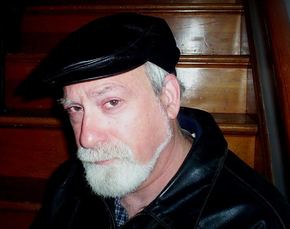 Mitchell Waldman's fiction, poetry, and essays have appeared in numerous publications, including, among others,TKairos Literary Magazine, Corvus Review, Literally Stories, Crack the Spine, Foliate Oak, Alfie Dog Fiction, The Houston Literary Review, Wind Magazine, Poetpourri, Connotation Press, Wilderness House Literary Review, The Battered Suitcase, Fiction on the Web, and eFiction Magazine. His work has has also appeared in the anthologies Beyond Lament: Poets of the World Bearing Witness to the Holocaust (Northwestern University Press, 1998), Messages from the Universe (iUniverse, 2002), America Remembered (Virgogray Press, 2010), and Green (MLM, 2010). He is also the author of the novel A Face in the Moon, and the short story collection, Petty Offenses and Crimes of the Heart (Wind Publications, 2011), and has served as Fiction Editor for Blue Lake Review. For more information, see his website at: http://mitchwaldman.homestead. com. Two Adolfs The crowd's reaction to his speeches enthralled and excited him, reinforced his conviction that he was not the only one who felt this way, that those who had caused the troubles of the Reich would have to pay. He would come away from the adoring throng's reaction feeling invigorated, reenergized. But there was another side to him that no one knew. This was back in his early days, when he was just starting out. The quiet times with Eva in the garden, weeding, and planting and watching things grow. He treasured these times. Yes, there were two Adolfs, he felt, but this was the one the world would never know. It was on one such day, after a day of exhausting speeches before his followers, that he and Eva spent a relaxing day in the dirt and sun behind their little bungalow. This was the calm Adolf, the Adolf that loved nature, the growing, the harvesting of new, better vegetables, and flowers. He would think to himself (ever-thinking) maybe you could mix this tomato with that tomato and come up with a far superior tomato. He didn't know, would have to learn more about the process involved, but he sure he could grow a heartier, healthier German tomato. (But maybe it was a matter of getting rid of the weaker tomato species and encouraging the heartier types, who knew?) Well, he might not really have thought that, but it was worth a shot, just for a laugh or two. (Do you say tomae-to or do you say . . . never mind, really. I'm off the track here a bit.) No, really, back then with Eva by his side he was weeding in the hot sun in the small garden behind his small house, getting rid of the devil weeds to keep the good plants growing. On his knees, pulling the handkerchief (given to him by his father, Alois—he didn't know why he kept it—it meant nothing to him). Sometimes Eva would be singing merrily next to him, Adelweiss, he loved that particular song for some reason, something from his homeland, bringing him out a stein of beer or some iced tea, something to quench his thirst. And he would dig dig in the dirt, dig dig down to the roots to extract the guilty devil, extinguish from the earth, and then carefully dig holes for his new small flowering plants, removing the new green life from its pot, refilling the hole with the rich, black dirt, patting the dirt firmly around in almost a motherly (well, fatherly, at least) way and watering it with the small green watering can (a gift from Himmler on his last birthday) with the white shadowy image of a beer maiden, pitcher in her hand, on its side. After a day's work he would clean up, stand back and view his and Eva's accomplishments of the afternoon, his arm resting across Eva's strong back, feeling peaceful, satisfied. It was on one such occasion, after an end to the afternoon's work, that Adolf, shovel in his right, free hand, saw a small brown rabbit hopping toward the garden, close to his hearty crop of nearly ready to pick carrots. The sun was going down and the shadows were growing long. "Halt!" he shouted, and the rabbit did, it froze and bunched its little body, twitching in fear, its large button eye staring at him. With one quick movement Adolf tossed the shovel at the little animal and hit it dead on. Then, he scoffed, marched quickly to the prone animal, still breathing laboriously, picked it up and held it out toward the sky and, with the sun in the background, snapped its small neck like the cracking of a peanut, then tossed the body away, behind the good plant life, to keep this vermin from sullying his verdant garden.
0 Comments
Leave a Reply. |
ArchivesCategories
All
|
 RSS Feed
RSS Feed